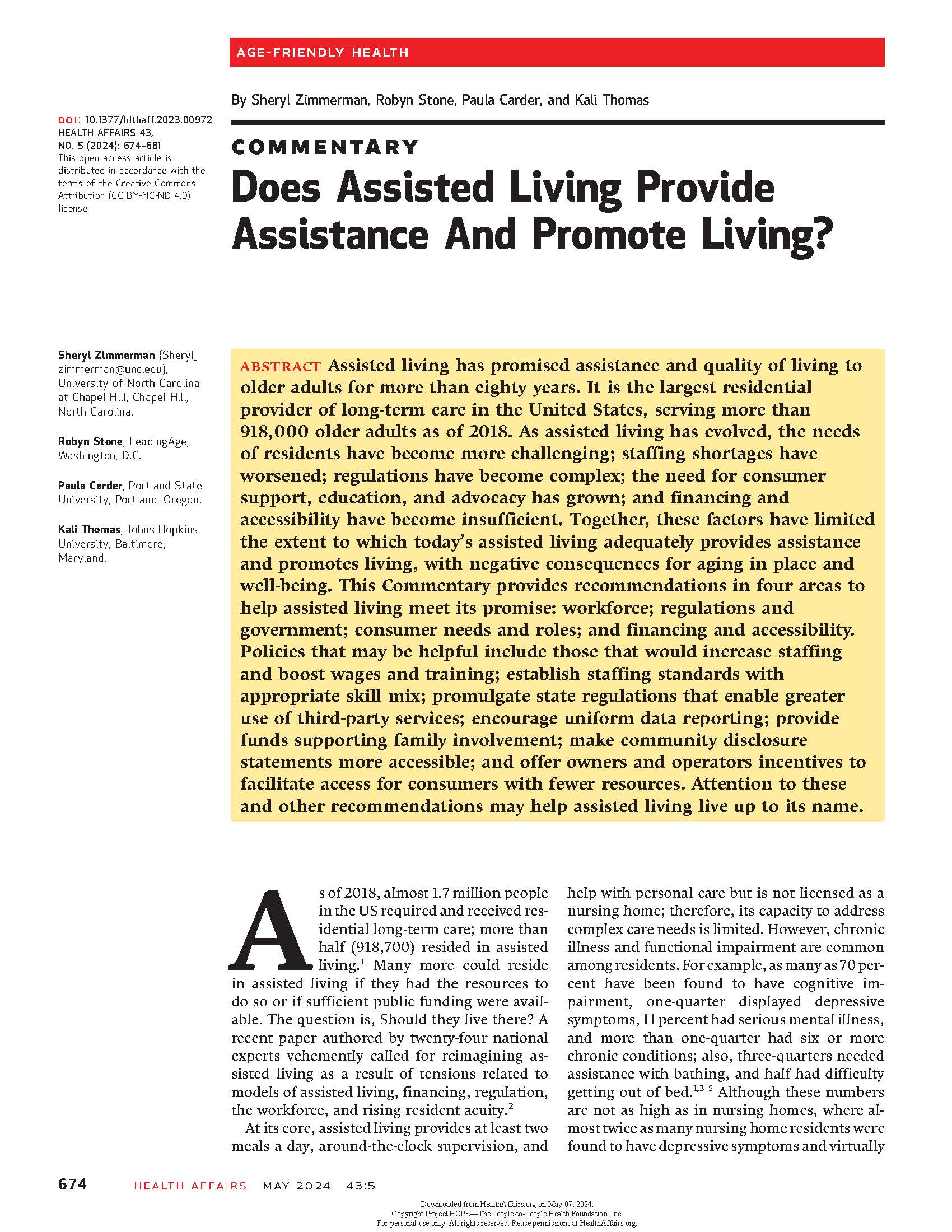Objectives
The purpose of this study was to examine factors associated with engagement in meaningful activity among residents with dementia in assisted living. We hypothesized that greater functional independence, less pain, and lower behavioral and psychological symptom severity would be associated with higher engagement in meaningful activity after controlling for residents’ age, gender, comorbidities, and cognition. Understanding factors associated with engagement in meaningful activity can help to inform strategies for optimizing engagement among residents with dementia in assisted living.
Method
This descriptive study used baseline data from a randomized controlled trial, Meaningful Activity for Managing Behavioral Symptoms of Distress (MAC-4-BSD). Linear regression was used to examine factors associated with engagement in meaningful activity.
Results
A total of 71 residents from 5 assisted living settings were included in the sample. Most participants were female (n = 52, 73%), White (n = 62, 87%), and mean age was 85 years old (SD = 8.2). Controlling for age, gender, comorbidities, and cognition, pain was significantly associated with engagement in meaningful activity (b= −2.09, p < 0.05). There were no associations found between function and behavioral symptoms with engagement in meaningful activity.
Conclusion
Findings from this study show that pain is a significant factor that is negatively associated with residents’ engagement in meaningful activity. Ongoing research is needed to help improve pain management for residents with dementia in assisted living and support their engagement in meaningful activity.


